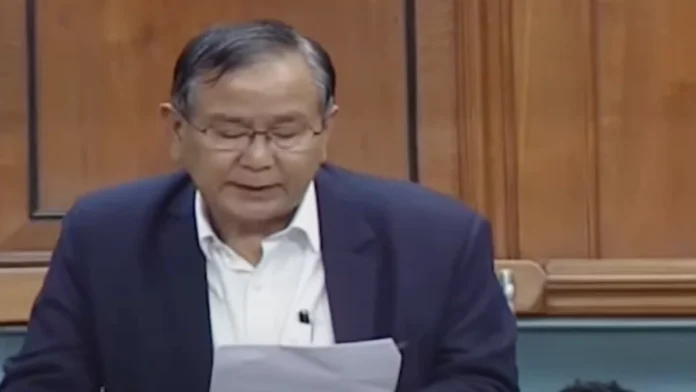New Delhi, 5th Feb 2024 : In a bid to curb the rampant issue of leaked exam papers, the Indian government has introduced the Public Examinations (Prevention of Unfair Means) Bill. The bill aims to penalize individuals involved in the illicit act of leaking exam question papers, whether for school exams, college entrance tests, or government job applications.
Under the new bill, those found guilty of leaking exam papers or tampering with answer sheets in collaboration with government officials could face severe consequences. Offenders may be subjected to a 10-year jail term and fined ₹1 crore. Notably, all offenses under this bill are cognizable, non-bailable, and non-compoundable, indicating a robust stance against exam malpractices.
Union Education Minister Rajkumar Ranjan Singh emphasized the significance of fair examinations, stating, “Any exam wants to test the real level, the knowledge and mental capability, of all candidates. If there is an unfair advantage to any one person, or group of people, this is not good for the growth of the nation.” The minister underscored the necessity of preventing unfair advantages to ensure the development of capable citizens by 2047.
Scope of the Bill
The new anti-cheating bill extends its reach beyond individuals, encompassing government employees and third-party agencies, including digital platforms hosting competitive exams. This broad coverage reinforces the government’s commitment to maintaining the integrity of examinations across various sectors.
Key Provisions of the Bill
To reinforce the examination process, the bill proposes the establishment of a high-level technical committee. This committee will focus on recommending measures to enhance the security of examinations, particularly as the process shifts to digital platforms. Key provisions include foolproof IT security systems, surveillance of examination centers, and minimum standards for physical and digital infrastructure.
Penalties for Offenses
The bill outlines specific penalties for different offenses related to exam malpractices:
- Leaking or Tampering: Minimum three-year jail term, extendable to five years with a fine up to ₹10 lakh.
- Non-Reporting by Service Providers: Fines up to ₹1 crore for service providers failing to report possible offenses.
- Senior Managers of Service Providers: Up to 10 years of imprisonment and/or a similar fine.
- Organized Crime of Paper Leak: Jail terms of five to 10 years and fines up to ₹1 crore.
Covered Exams
The proposed bill covers exams conducted by various authorities, including:
- Union Public Service Commission (civil service entrance exams)
- Staff Selection Commission (posts in union ministries and subordinate offices)
- Railway Recruitment Boards (certain jobs in the Indian Railways)
- Institute of Banking Personnel Selection (public sector banks, except State Bank of India)
- National Testing Agency (entrance exams for higher educational institutions)
The Public Examinations (Prevention of Unfair Means) Bill stands as a significant step towards ensuring the sanctity of examinations in India. As it awaits approval in Parliament and the President’s assent, its implementation promises a more secure and trustworthy examination system, fostering a fair environment for all candidates. Let us hope that this legislative intervention contributes to the creation of a generation of capable and ethically driven individuals.
